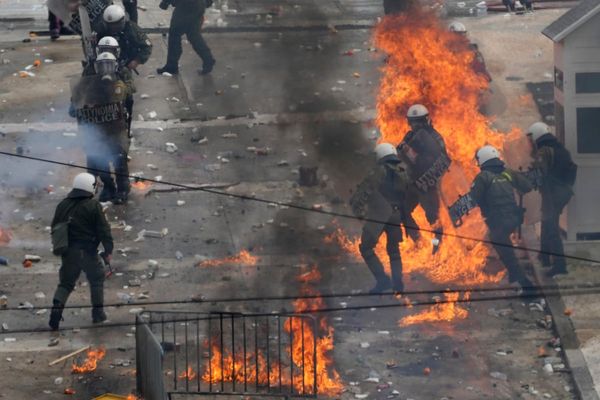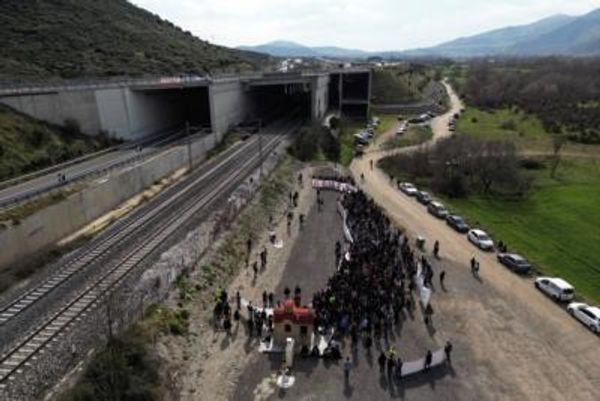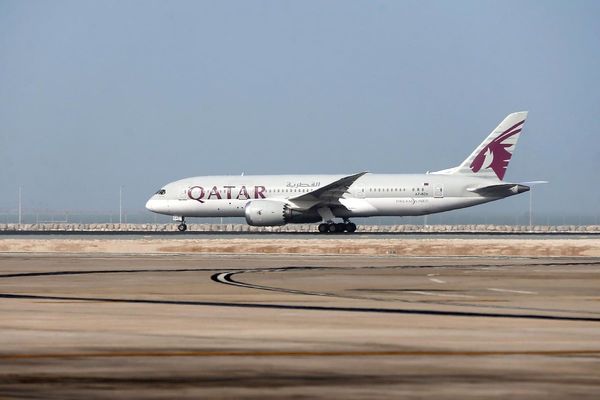
Russia has unleashed a deluge of missile strikes on Ukraine in retaliation for the blast on Saturday that damaged the bridge to Crimea. Several military experts feel this operation is counterproductive as Moscow is struggling to replenish its weapons stocks.
Russia claimed responsibility on Tuesday for a new series of strikes targeting Ukraine's strategic infrastructure. The day before, 19 people were killed across Ukraine in the most intense missile-strike campaign that Moscow has conducted in several months.
This show of force, which followed Saturday's blast on the bridge over the Kerch Strait linking Russia and Crimea, comes at a difficult time for the Russian army, which is struggling to stem the Ukrainian advance on the eastern and southern fronts. Far from embodying a new strategy, the military escalation reflects the anxiety of the Russian regime, according to several experts contacted by FRANCE 24.
‘Significant military investment’
The missiles, rockets and drones that Russia has launched this week have hit civilian energy infrastructure as well as central areas in more than 20 cities and villages, according to the Ukrainian authorities.
"This is the first time that Russia has launched strikes of this magnitude," said Jeff Hawn, an expert on Russian military issues and an external consultant for the New Lines Institute, a US geopolitical research centre. "It wanted to prove that it is still capable of launching large-scale punitive attacks across Ukraine and hitting critical infrastructure. But these operations pose two major problems for Moscow: They rarely destroy their targets and can only be launched episodically because they represent a significant military investment."
According to the Ukrainian military, Russia on Monday alone launched 75 missiles at the country, 41 of which were shot down by air defence. Ukrainian Defence Minister Oleksiy Reznikov on Tuesday welcomed the arrival of the German Iris-T missile launcher, which he said marked the start of a "new era" for Ukrainian air defence. The following day, G7 leaders promised Kyiv additional military aid, including new and improved air defence systems, during their video conference meeting.
Despite massive Western military aid to Ukraine in recent months, Russia still has a large military advantage over its neighbour as it commands what is considered the world’s second-most powerful army. In the long term, however, this dynamic could change, said Hawn. "The Ukrainian military is growing in strength while Russia is seeing its military capabilities decline inexorably as it is unable to maintain its stockpiles."
Supply problems
Ukrainian Deputy Defence Minister Hanna Maliar in late April claimed that Russia had already launched 1,300 missiles at Ukraine since the invasion began on February 24, estimating that Moscow had used up almost half of its available stock by then.
"It is estimated that Russian industry has a production capacity of 100 to 200 new missiles per year," said General Christian Quesnot, former chief of staff to the French presidency. "The problem today is renewal. It is difficult because the Russians have steel sheet metal and explosives but are low on electronic guidance systems."
The economic sanctions imposed on Russia since the invasion have weighed heavily on its arms industry, which is struggling to source electronic components. In this context, Moscow has been forced to drastically reduce or even halt its arms deliveries abroad and turn to new suppliers, such as Iran and North Korea.
Soldiers on their own
In addition to the impact of sanctions, the Russian military industry is paying the price for decades of mismanagement, said Hawn. "Moscow has huge amounts of military equipment, but some of it is unusable because of the incompetence of the people who are supposed to maintain it and the institutional corruption in this sector. Selling military parts and equipment on the black market is a widespread practice in Russia, so much so that even before the war some conscripts found themselves having to buy their own equipment."
In recent months, faced with an increasingly difficult military environment, Russian soldiers who feel abandoned by their superiors have expressed their anger on social media.
"The Russians need ammunition so that they can support their troops, who are on the front line and complaining bitterly about not having fire support," said General Michel Yakovleff, former vice chief of staff of the Supreme Headquarters of the Allied Powers in Europe (NATO). "While its soldiers are fighting on the ground, Russia is setting off fireworks. This operation makes no military sense."
While the Russian strikes earlier this week caused major power cuts across Ukraine, they did not stop Kyiv's forces from continuing their counteroffensive. The Ukrainian presidency announced on Wednesday that it had recaptured five settlements in the southern region of Kherson, which Moscow declared it had annexed at the end of September.
This article is a translation of the original in French.







